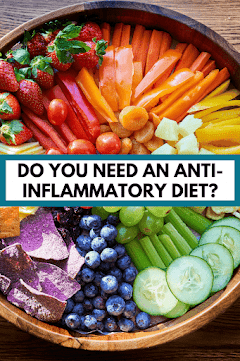Neutropenic diet:-•The neutropenic diet is an eating plan for people with
weakened immune systems. It involves choosing foods and preparing them in a way
that lowers your risk of foodborne illness. If you have a weakened immune
system, your doctor may recommend that you follow a neutropenic diet to limit
your exposure to harmful microbes and bacteria.
•Neutropenic diet can help prevent foodborne illness in
someone with a weakened immune system. People with cancer may have a weakened
immune system due to the disease. Chemotherapy, radiation therapy, and a stem
cell transplant can also cause a weakened immune system.
Food Guidelines:-
·Avoid
raw and undercooked meat, processed, and cured meats unless heated until
steaming hot.
·Avoid
smoked seafood
·Avoid
raw fish and shellfish.
·Avoid
raw and undercooked eggs.
·Avoid
salad bars and buffets.
·Avoid
unpasteurized products, such as unpasteurized dairy items
(like milk, cheese,
and eggnog), as well as unpasteurized honey,
juice, and cider.
·Avoid
fresh and packaged foods that are past their “use by” and
expiration dates.
·Avoid
consuming raw sprouts of any kind, including alfalfa, clover,
radish, and mung
bean sprouts.
·Avoid
leftovers older than 48 hours. It is important to follow proper
food storage
and reheating guidelines if you plan to prepare food
ahead of time or save
leftovers.
Anti-inflammatory
Diet:-
•The anti-inflammatory diet is recommended for prevention
or
reducing low-grade chronic inflammation, a key risk factor in a host
of
health problems and several major diseases.
•The typical anti-inflammatory diet emphasizes fruits,
vegetables,
lean protein, nuts, seeds, and healthy fats.
•The anti-inflammatory diet is recommended to reduce
chronic
inflammation and to help prevent or treat the following conditions:
allergies, Alzheimer's disease, arthritis, asthma, cancer, depression,
diabetes, gout, heart disease, inflammatory bowel disease (such as
ulcerative
colitis and Crohn's disease), irritable bowel syndrome
(IBS), and stroke.
Foods
to Eat on the Anti-Inflammatory Diet
•High intake of vegetables, fruits, nuts, seeds, healthy
oils, and fish
may have a reduced risk for inflammation-related diseases. In
addition, substances found in some foods (especially antioxidants
and omega-3
fatty acids) appear to possess anti-inflammatory
Foods
high in antioxidants include:
•Berries (such as
blueberries, raspberries, and blackberries)
•Cherries
•Apples
•Avocados
•Dark green leafy
vegetables (such as kale, spinach, and collard greens)
•Sweet potatoes
•Broccoli
•Nuts (such as
walnuts, almonds, pecans, and hazelnuts)
•Beans (such as red
beans, pinto beans, and black beans)
•Whole grains (such as
oats and brown rice)
•Dark chocolate (at
least 70 percent cocoa).
Foods
high in omega-3 fatty acids include:
• Oily fish (such as salmon, herring, mackerel,
sardines, and anchovies)
• Flaxseed
• Walnuts
• Omega-3-fortified foods (including eggs and
milk)
There's also some
evidence that certain culinary herbs and spices,
such as ginger, turmeric, and
garlic, can help alleviate inflammation.
Foods
to Avoid:
•Omega-6 fatty acids (a type of essential fatty acid
found in a wide
range of foods) are known to increase the body's production of
inflammatory chemicals. Therefore, they should be avoided.
Foods high in omega-6
fatty acids include:
•Meat
•Dairy products (such as milk, cheese, butter, and ice
cream)
•Margarine
•Vegetable oils (such as corn, safflower, soybean,
peanut, and cottonseed oil)
•Instead of vegetable oils, opt for oils like olive oil
and avocado oil.










Comments